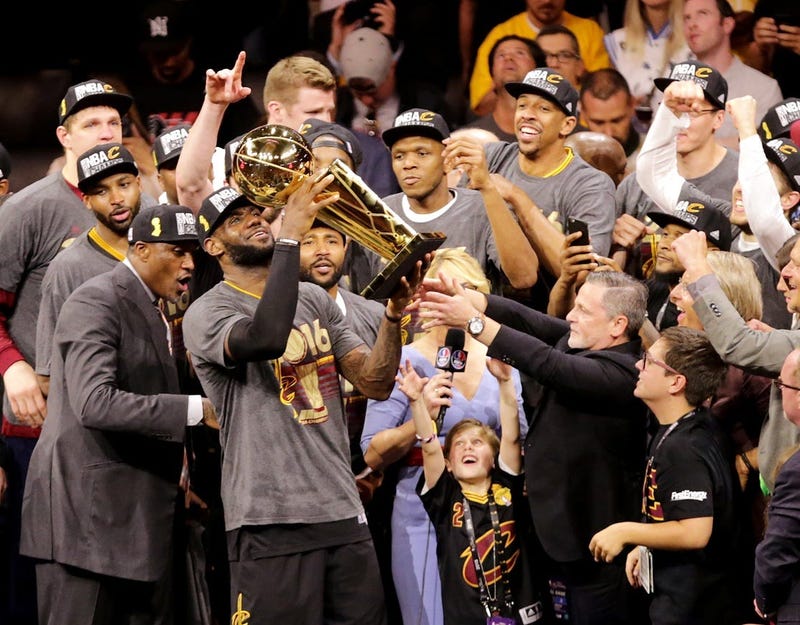
When a team gains a 3-1 series lead in the NBA Finals, they have every reason to be confident. I mean, no team in the history of the NBA Finals ever blew a 3-1 series lead, right? That would be correct, until the 2016 NBA Finals, when the Cleveland Cavaliers came back from a 3-1 deficit to defeat the defending champion Golden State Warriors.
The series had all of the storylines and hype necessary to ensure an exciting and improbable finish. First, the matchup was a repeat from the 2015 NBA Finals, where the Warriors defeated the Cavaliers in six games. Second, the Warriors were coming off a historic regular season where they broke the NBA regular season wins record with a 73-9 record.
It was also the first time the one-seed from each conference met in the Finals since 2008. Plus, the Warriors roster featured back-to-back NBA MVP Stephen Curry while the Cavaliers roster featured LeBron James, appearing in his sixth consecutive NBA Finals. But on top of all this, the Cavaliers had never previously won a championship and Cleveland had not seen one of its major professional sports teams win a title since 1964.
Was this the greatest comeback in NBA history or the greatest collapse?
If you looked at the internet or any social media platform over the course of the year following the 2016 NBA Finals, it was clear that this is viewed as a collapse by many. “The Warriors blew a 3-1 lead” became a popular saying (and meme) across the sports world, even in situations where it did not apply.
Although the Warriors were heavily favored and failed to finish off what would’ve been arguably the most dominant season in NBA history, the Cavs deserve an enormous amount of credit for how the Finals played out. This was one of the greatest comebacks of all-time, led by arguably the greatest series performance by a single player in NBA history.
After going down 3-1 to the Warriors and facing elimination in Oakland, LeBron added to his resume by scoring 41 points and adding 16 rebounds and 7 assists to keep the Cavaliers alive. He followed this impressive performance with another 41 points to go along with 8 rebounds and 11 assists in Game 6 at home, giving his team and city a chance to win a championship on the road.
Game 7 was a low-scoring, high-intensity contest between two teams who were clearly getting tired of each other. In a tight game down the stretch, LeBron delivered a career-defining moment.
With 1:50 remaining in the game, tied at 89, the Warriors’ Andre Iguodala looked to have a clear layup to take the lead when James chased him down and delivered “The Block”, pinning the ball against the backboard in unbelievable fashion. The Cavaliers went on to win Game 7, thanks to an all-around effort from James and a clutch game-winning three-pointer from Kyrie Irving.
James dominated the series, becoming the first player in NBA history to lead all players in points, rebounds, assists, steals and blocks during a series, and was named Finals MVP. Not only did he lead the Cavaliers out of the depths of a 3-1 deficit, but James gave the city of Cleveland and the Cavaliers franchise a championship they so desperately needed against a team that many were ready to put in the greatest team of all time conversation.

